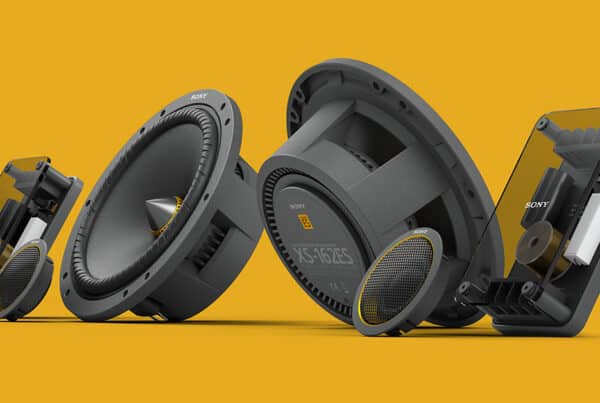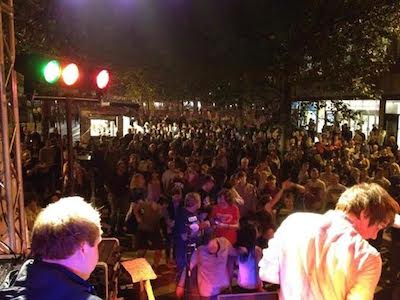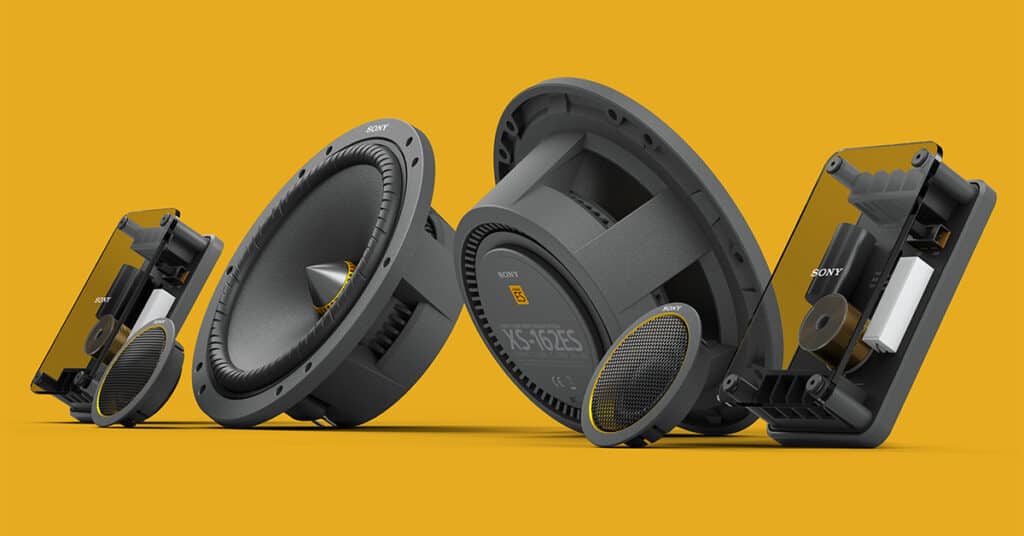Nick Prot[0]type talks with Alfa Matrix‘s Seba Dolimont about the state of contemporary Industrial music in his latest blog…

“A large majority of artists active on this scene do it all for the fun”
In this, my second bit of scribble for SPHERE. I am tasked with talking about the Industrial music industry. The future of Industrial music. The money we hope to grab from it…
Alas. I’ve been writing the music, playing the shows, DJ’ing the hell out of Industrial music now for years! I was a teenager when we started 3ulogy. We took Industrial metal and turned it into electro. Now everyone is doing it. Better than we did for sure – we made the mistake of trying to do the shows, and get out there as a live band before doing anything else. But that’s the scene we come from. We liked it live and somewhat DIY.
But that’s where I think it should go. Mixing rock with electronics has always been a big thing. Bands in the 90s turned it into pop. Acts such as Babylon Zoo made dark electronic rock pieces and splashed it with a silken commercial cheese to create …well ‘Spaceman’.
Bands like Psyclon Nine take extreme metal and do the same thing. They add in layer after layer of dark and harsh electro. These bleak electronic bands that have been doing the rounds for years are even now starting to copy – adding in live guitars, distorting their vocals if they can’t scream, trying to make Industrial music… rock.
The scene is alive. More bands are open to experimentation and are allowing more diverse and unique ideas to filter the s*it Industrial presets of the last 10 years. There is nothing wrong with staying true to your sound or whatever the going excuse for null creativity is…. But if the scene will go on and thrive, either in the underground or to a commercial level then it will always, like everything, have to adapt and think of new methods.
Combichrist have proven that there is a huge amount of commercial pull for Industrial music, if it’s catchy (perhaps even cheesy as hell) and if it has the rock sensibilities that are missing from this somewhat angry – dance scene, it can succeed. Their recently announced Rammstein support tour is nothing but testament to this.
There is of course a future in this scene. I think even a commercial one for some aspects of it. Money? Play live. Get out there as much as possible, scream shout and put on a show. Get booked again, DJ – make it dance-floor friendly and you might even get regular guest slots, many many drinks and a name for yourself, play some shit most don’t dare to touch and you are fu**ed ‘winks at self in mirror’. In other words the money is in the clubs, the live shows and DJ spots. But I think the industry in general is a little screwed when it comes to making money purely from your music alone. Unless you plastic haired, Ronan [Harris] wannabes feel like glossing up and becoming the next Miss GaGa you are getting next to nothing. It’s naïve to think that every musician does it purely for the music. I love music – I also love money. I would love the two to get along like I do with each of them. But polyamorous relationships rarely work.
I tried to get the promoter to pay but he said ‘your music sucked’ and so, I said ‘then surely I should get an extra £50?’
I decided that my insight in to any of this is limited and bitter at best. I think the scene will always be here, the bands will keep pressing on and hopefully the people will keep making it fun. Though the live environment here in England can be somewhat overpopulated by gits who are there purely to show off an exaggerated dancing style – back-facing the bands- not really knowing or caring to what or whom they are listening. Well I think that the rest of this can be devoid of rant. My insight is above, I could go on but many people know more and can give you a more informed opinion on much of this.
So, I decided to pose the same questions on behalf of SPHERE, and I was asked to work with to one Mr Seba Dolimont, label and artist manager at Alfa Matrix. Here is what he had to say…
N] Seba, what do you think the scene’s future is with regards to musical direction and audience sizes?
S] By ‘scene’ I suppose you are referring to the underground electro, Goth and Industrial scene? What we also often call the ‘dark scene’? I think the evolution on this scene has always been quite cyclic and I don’t think we can expect a radical major change in this over the next years. We had synth-pop-new-wave tunes, then in reaction came a harder and more muscled version with pure EBM à la Nitzer Ebb. Then things started to blend a bit, leading to dark elektro with lots of distorted vocals. Then came guitars in the mix. At the same time came the synth-pop revival reaching its top with the so-called future-pop movement. This included merges with more trancey & dance elements. These lighter tones as usual attracted opposite movements leading to the power noise genre.
We are also experiencing the old-school EBM revival next to the harsh endzeit elektro movement. The logical next step should be the return of more and more guitars into electronics but in balance, and eventually a new rise of calmer, moody,
synth-pop tunes with some wave guitars? I don’t have any crystal ball of course, but all-in-all, it’s very cyclic, incorporating elements from other scene movements (house, techno, metal, pop and rock…) and injecting them in a more underground style.
What radically influenced the underground music scene is for me the democratisation of studio gears. Being able to have a decent sound system on your small laptop with plug-ins et cetera, while in the past you needed a serious financial backing and investment to access a good recording studio. It’s was a very positive thing for the talented artists who had empty pockets. But it also gave access to self-released artists wanting to express themselves and release their work to the world. All quality barriers got scrambled, and the internet communication simply boosted the whole proliferation. Nowadays it’s just so difficult finding the gold amongst the dross. MySpace is most probably the best example for it. It’s just getting too much.
Anyone can also proclaim itself an indie label now. In reality too many do not even have a distribution network. It all results in a much much too large offer compared to the demand. Especially these days when CD buyers are a species threatened by extinction. I do not expect this scene to grow much. It did not do so in the past years – but it also makes it quite special. And that’s also probably why we are all part of this scene. We like its underground dimension, its confinement, its darkness. Now I do still believe that some bands from our scene would for sure appeal to outside scenes if they had started elsewhere. Only a very limited number of such bands manage to do it outside the scene and this is something we all should be proud of… Take VNV or Front 242 just to name two of them…
N] Is there any money to be made within the scene as a recording artist?
S] A large majority of artists active on this scene do it all for the fun – it’s more of a hobby than a job. People make music because they like it and want to express themselves and be heard. Their main aim is not making money nor living from their music. Of course some dream of it. A small portion of these organise themselves so well that they eventually manage surviving from their music without being able to live the star lifestyle. These guys are usually studio techies, who do mastering, production, mixing, live support, live mixing, design, DJ sets, VJ sets and every little income added to the other makes it possible to live from the music. But I suppose such people also face some ups and downs.
Today what generates the most income for artists is probably the live fees – but high concert fees are mostly reserved to more renowned artists. Too many smaller bands have first to go through pay to play tricks or free performances to try and get a name. So, you first have to go through some hard times until you really make it. CD sales have been drastically going down and so you no longer really make money from CD sales. Digital sales are there to compensate a bit, but then you need to be on a label who has a good artist management policy where the label does not keep the lion’s share on digital sales. This is not always the case. But the fact is that today you release a new album to get new concerts, while in the good old days, you were doing a tour to promote your new record. It’s just the world upside down.
So all in all – a very tiny portion of bands will be able to make money on this scene. But they are not legions. The same applies to labels too any how. Not many labels on this scene are living from their activities. It is for many a hobby. For my label Alfa Matrix, it has always been part of our label concept: not being dependent too much on economic factors. For this reason the three people involved in Alfa Matrix have always kept a full time job next to our label activities. But it is a deliberate choice of ours, and not one that we regret. By far, especially when you see how the music industry has been evolving the last few years. Sales went down with over 50 per cent in the last 10 years – and it was the same already the previous 10. The downward spiralling process is simply accelerating. No-one knows where it will all end, but it will create many victims amongst the smaller indie labels (and their bands) who find it harder and harder to sell a couple of hundred releases to break even. The tragedy has started and is now at our door.
N] Is there a future for Industrial music in it’s current incarnation?
S] There is an underground future for sure. But I expect the powerful Industrial movement to get progressively replaced in the next two years by the next hyped artists. Let’s hope to be all a part of it and keep having fun.
For more information visit the Alfa Matrix MySpace and for more of Nick‘s work check out his music as Prot[0]type.



